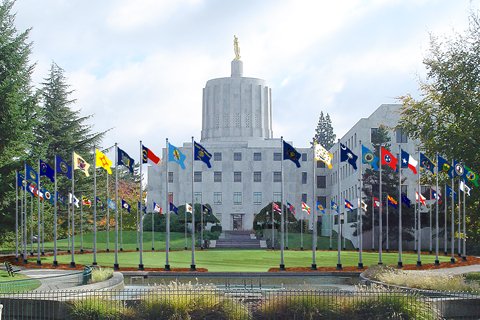2022 Post-Election Wrap Up
With the recent 2022 midterm election in the books, we can take stock of what might change and what we can expect from newly elected leaders. Will they drive an agenda that will impact the forests, rivers, and wildlife in the Rogue River Basin and Klamath-Siskiyou Region?
Let’s take a look at the federal, state and local election results and a quick read of what that might mean for the conservation of natural resources and protection of communities in northern California and southern Oregon.
Federal
Executive: Given the outcome of the midterm election, where the Democrats did better than expected, the Biden Administration might feel emboldened to expand their policies further, including an emphasis on tackling climate change. This is primarily through investments in renewables, watershed health, and forest resiliency as dozens of federal agencies implement recent climate and infrastructure spending bills. We should expect the primary federal agencies in the U.S. Dept. of Agriculture and Interior focused on forest, wildfire, and watershed health issues to continue with similar policies of the past two years.
Legislative: The Democrats secured a narrow majority in the Senate even while the Georgia Senate race is headed to a run-off on December 6th. This means that the work in Senate committees and leadership will remain largely unchanged. One of the many reasons this is important is the backlog of federal judge appointments which will now likely move through the U.S. Senate. Federal court interpretation of environmental law is often key in upholding land and water safeguards.
In the House of Representatives, the Republicans took over as the majority by a very narrow margin. This means that anti-conservation members will assume leadership and control of committees such as the House Natural Resources committee. We are likely to see legislation pass the House with an emphasis on freeing up more logging, mining, and oil and gas drilling projects on public land.
With congress divided, it remains to be seen how much will get done. The razor thin margins might mean that there is very little enacted legislation in the next two years. However, there may be a way forward on some legislative efforts - both good and bad for the environment - if one side can peel away a few votes on compromised legislation. Recent history suggests that compromise is unlikely, but not impossible.
What is a Lame Duck? There is a real opportunity to pass public lands bills in the coming “Lame Duck” session between now and when the new congress is sworn in on January 3, 2023. With both chambers under Democratic control and with several “must pass” spending bills needed to move soon, this is a real opportunity. This includes key KS Wild legislative priorities such as a permanent mining ban in the Smith River and Rough and Ready Creek along with expansion of protections for the Wild Rogue River. Fingers crossed.
State
Executive: Tina Kotek and Gavin Newsom were elected as governors in Oregon and California, respectively. The most watched was the Kotek race in Oregon, where a third party candidate Betsy Johnson could have swung the election to Republican Cristine Drazen. Both Johnson and Drazen likely would have undone Oregon’s climate policies and favored big business.
With the Kotek victory we can expect a continuance of Gov. Brown's priorities in Oregon include climate action through implementation of Brown’s executive order. There are numerous and sometimes lesser known actions where change will incrementally occur, such as policy setting through rulemaking. The Governor can also drive a state legislative agenda that will encourage pro-conservation reforms. The story is similar in California.
Legislative: The Democrats lost a few seats in the Oregon legislature, but retained a majority and will likely continue to advance a modest conservation agenda that will focus on reducing greenhouse gas emissions. KS Wild will continue to engage on issues related to wildfire, forest management reform, updating water policy, and reducing toxic pollution. A ballot measure to punish members that walk out of the legislative session passed, which may enable more work to get done in the upcoming sessions as Republicans staged walkouts over climate related legislation in past sessions.
Local
Local races for city councils and county commissioners are also important as these jurisdictions can adopt policies and regulations that can protect water resources and make decisions in a climate friendly manner. By and large, there is not much to report as all the county commissioners in the region and most of the municipal governments retain a similar composition as before the election.


